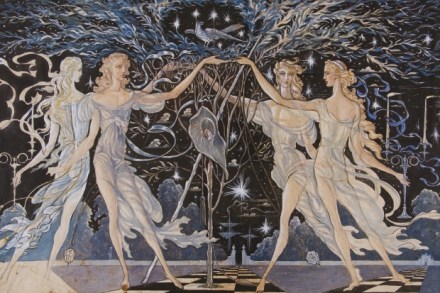Blitzed on Benzedrine
Lore has it that those viewing naughty books in the British Museum could once do so only with the Archbishop of Canterbury in attendance. Such pastoral care may be advisable for any institution ending up with the private archive of letters, diaries and artwork from which Joscelyn Godwin compiles this eccentric and nicely produced account of his parents’ lives from 1940 to 1948. Edward Fell Scott-Snell and Stephani Mary Allfree met in 1935 and set about cultivating Thessyros, a fantasy land Edward had already sown with overripe imagery and peopled with priapic cupids, ageing debauchees and, Godwin explains, ‘assorted gardeners, priests, and organists who gleefully seduce their willing, under-aged charges’.





















